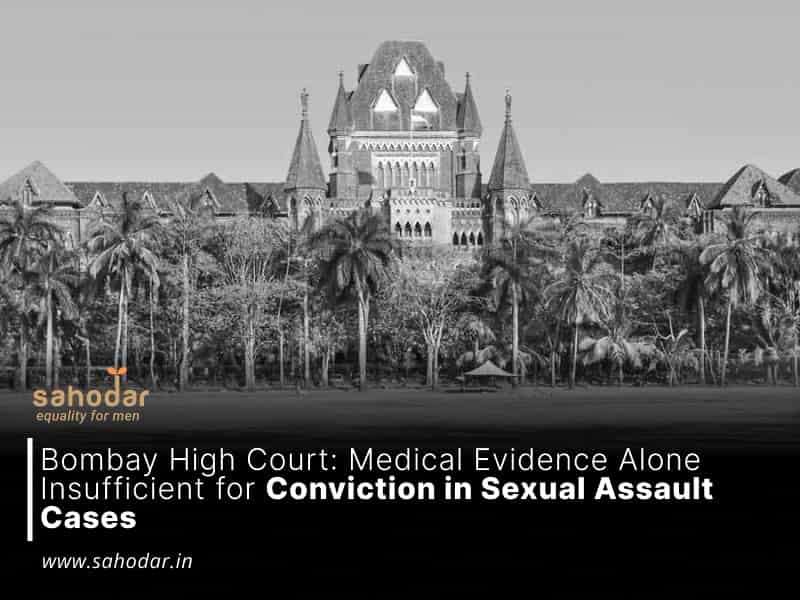Justice GA Sanap held that while medical evidence can be used as corroborative evidence, it should not be considered the primary evidence in establishing guilt.
The Nagpur Bench of the Bombay High Court recently held that medical evidence cannot be deemed substantial in sexual assault cases unless supported by other compelling evidence. [Pradeep Gulabrao Choudhari v State of Maharashtra]
Justice GA Sanap emphasized that medical evidence serves as corroborative rather than primary proof in determining guilt.
As a result, the Court overturned a lower court’s decision, which had sentenced a Nagpur man to 20 years in prison for allegedly sexually assaulting a 10-year-old girl.
Justice GA Sanap observed that the trial court erred in treating medical evidence as the primary basis for the conviction.
“The learned Judge has accepted this history of assault as an important piece of evidence. In my view, the learned Judge was not right in accepting the evidence of the medical officer as substantive evidence to prove the charge against the appellant. The evidence of the medical officers can be used as corroborative evidence… In the absence of substantive evidence as to the occurrence of the incident, it was not proper on the part of the learned Judge to place implicit reliance on the medical evidence to base the conviction of the appellant,” the Court observed.
The incident happened on January 5, 2022, when the victim was visiting her uncle’s house in Nagpur. The landlord of the property allegedly lured the girl to a secluded spot and assaulted her. A medical examination later found injuries consistent with sexual assault cases.
The victim’s mother filed a complaint, leading to the landlord’s arrest. In June 2023, the Additional Sessions Judge sentenced him to 20 years in prison based on medical evidence and the victim’s statement recorded under Section 164 of the Code of Criminal Procedure.
During the appeal, the defense argued that key witnesses, including the victim, her mother, and her maternal aunt, did not support the prosecution’s case.
The defense argued that medical evidence could not serve as direct proof of the crime and could only be used as supporting evidence.
The prosecution maintained that the medical findings were critical in backing the charges, asserting that the witnesses had not completely dismissed the occurrence of the incident.
The Court noted that neither the victim nor her mother had made any allegations of penetrative sexual assault against the accused.
“In the absence of substantive evidence as to the occurrence of the incident it was not proper on the part of the learned Judge to place implicit reliance on the medical evidence to base the conviction of the appellant. Except for the evidence of the medical officer, there is no other substantive evidence to prove the charge against the appellant,“ the court said.
The Court further clarified that a statement recorded by the Magistrate under Section 164 of the CrPC cannot be treated as substantive evidence for conviction.
As a result, it concluded that the prosecution had not proven the appellant’s guilt beyond a reasonable doubt.
“The learned Judge has handed down the sentence of 20 years to the appellant. The prosecution has miserably failed to prove the guilt of the appellant,“ the Court ruled while acquitting the accused.

